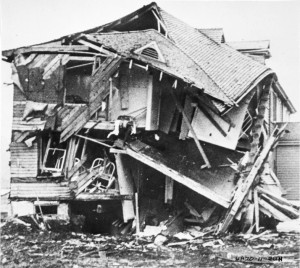Tribal and federal officials say the plan to build a regional hospital for the Southwest in Unalaska is closer than ever to reality.
For most locals, the idea of a full-size hospital in Unalaska has always been little more than a pipe dream. But not for Tom Robinson of the Qawalangin Tribe. He’s been trying to make the hospital happen for more than five years.

“We noticed that we really needed a medical facility in Unalaska,” Robinson says. “And with the course of events of losing some of our elder a couple years ago, the [Qawalangin] tribe really pressed the issue.”
They teamed up with their tribal health provider, the Aleutian Pribilof Islands Association, to put new energy into lobbying for a hospital. Now, the APIA’s primary care services administrator, Jessica Mata-Rukovishnikoff, says that work is paying off.
“It is definitely the closest we’ve been in all the years since we first started the project in 2008,” she says.
That’s thanks in part to Alaska Sen. Mark Begich. He’s lobbying for up to about $100 million in federal funds for the project. Mata-Rukovishnikoff says the APIA would be happy to see even part of that sum, and they’re asking local groups to chip in, too.
“They’re more likely to see and pass and give money based on support from the community,” she says. That includes more than just tribal stakeholders. The hospital will be designed to serve everyone in the region — locals, veterans, fishermen and other industry workers and tribe members.
So the APIA is casting a wide net to look for funding. Meanwhile, other details of the project are still coming together. There’s no location for the hospital in Unalaska yet. And housing for its 200 or so expected employees is still up in the air.
In terms of services: Mata-Rukovishnikoff couldn’t say yet how many beds the hospital would have. But she says it should offer a 24-hour emergency room, basic surgeries and a range of specialists.
She’s also hoping they can provide prenatal and maternity care. That would mean expectant moms wouldn’t have to spend weeks in Anchorage when it was time to give birth, which, she says, “would be something of a major accomplishment.”
For outpatient services, the new facility would absorb Unalaska’s two existing clinics — the APIA’s Ounalashka Wellness Center, and the Iliuliuk Family & Health Services community clinic.
IFHS director Eileen Conlon-Scott expects to move all her staff, services and grant funding over to the new hospital. The clinic’s current building might become an administrative office.
Scott says the merger would be a big step forward.
“We have people that don’t get health care services because they can’t afford to fly off the island,” she says. “[At IFHS], we’re trying to bring consultants to the island at least to get an initial check-up by a specialist, but to have some of these specialists here the whole time — it’s much better for our community.”
For Tom Robinson of the Qawalangin Tribe, flying to Anchorage for routine care has been the norm for far too long.
“If you look at what the locals in the region have to go through to get primary care — it’s very tough,” he says. “And this’ll also serve our elder — can you imagine the stress that our elder have to go through to travel to get primary care?”
Robinson says the hospital would serve about 2,000 tribal members, and as many as 10,000 Aleutian, Pribilof and Southwest residents in total.
It would also make good on a decades-old loss — by replacing the native hospital destroyed in Unalaska during World War II.
“Our hospital was bombed by the Japanese … and then burnt down by the military. And thereafter, it was never rebuilt,” Robinson says. “Really, there wasn’t any effort put back into — or there wasn’t the initiative to have it rebuilt until recently.”
Even if everything goes according to plan, Unalaska won’t see its new hospital until about 2018 — and Robinson is confident it’s going to happen. The tribe has already started doing community outreach in Unalaska. They’re planning on more as they start looking at locations for the hospital later this year.
Annie Ropeik is a reporter for KUCB in Unalaska.




